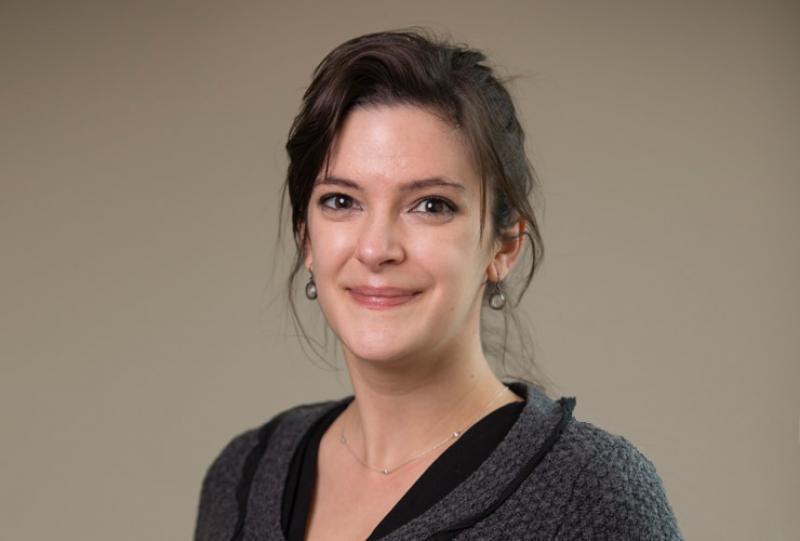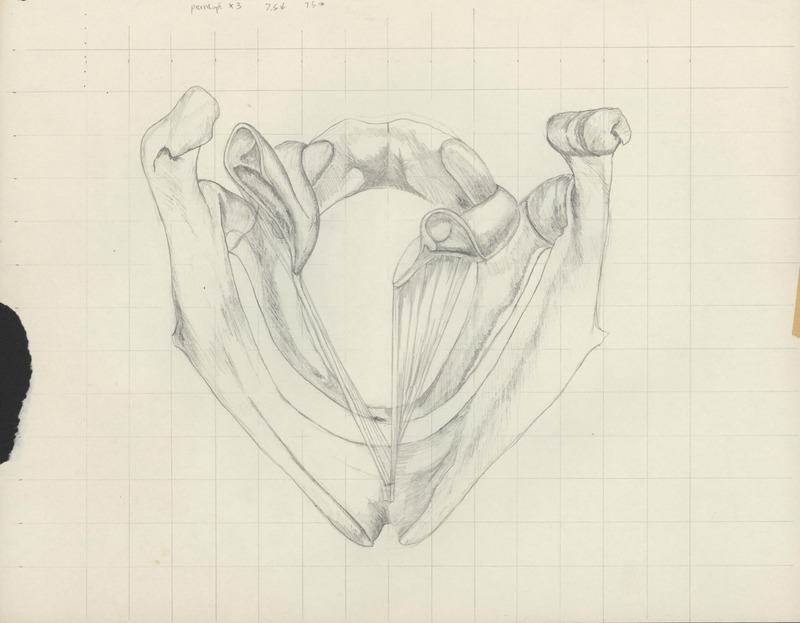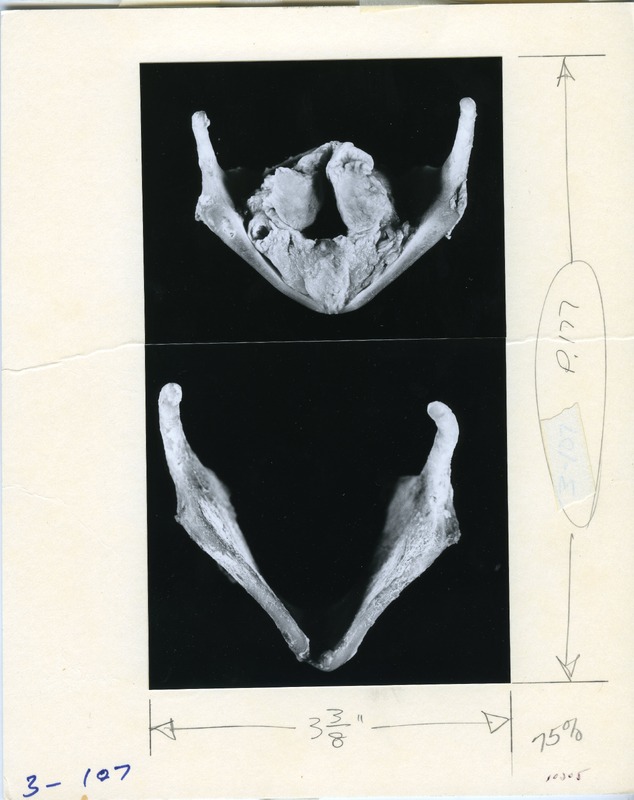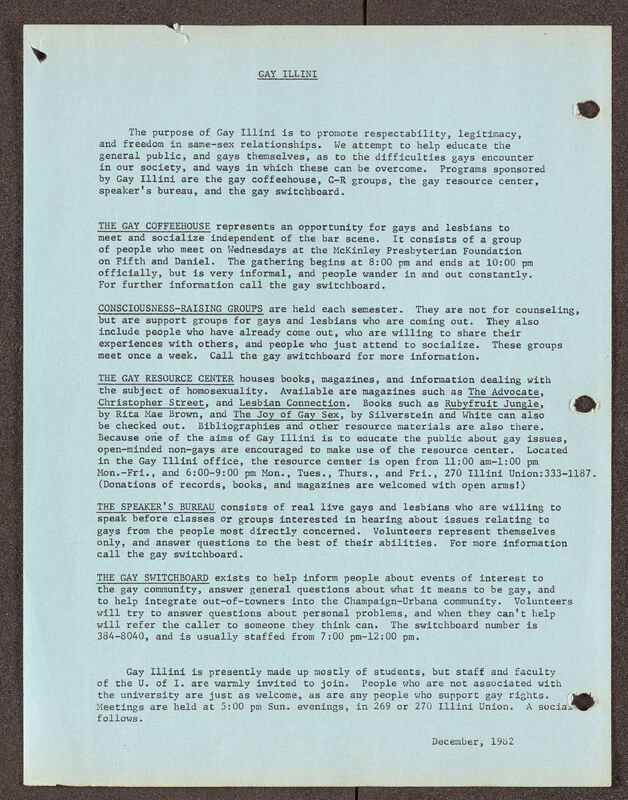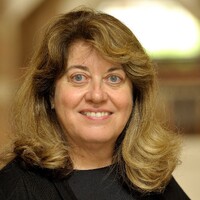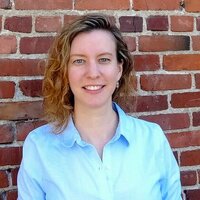December 2022 - Professor Clarion Mendes
Professor Clarion Mendes is the Director of Clinical Education and a Clinical Assistant Professor of Speech and Hearing Science for the College of Applied Health Sciences. In her work as a Speech-Language Pathologist, she has focused on neurological conditions affecting communication and gender affirming communication for transgender individuals. Along with being a provider with the World Professional Association of Trangender Health (WPATH) and a certified practitioner of Lee Silverman Voice Treatment (LSVT), Professor Mendes was also awarded the University of Illinois LGBT Resource Center Emerging Ally Award in 2018 for her work.
From the University Archives:
In working with transgender individuals to help them find their voice, Professor Mendes provides her clients with techniques to help change the tone, resonance, projection and pitch of their voice. In doing so, she relies on a thorough knowledge of how sound is produced by the human body. During his time at the University of Illinois (1962-85), another Professor of Speech and Hearing Sciences—Willard R. Zemlin (1929-98)—wrote a textbook and workbook titled Speech and Hearing Science: Anatomy and Physiology. His papers contain original drawings and draft copies for many of the illustrations found within the book.
While Professor Mendes is one of the first people at the University of Illinois offering a clinical experience for gender affirming voice training, the University has a long history of supporting LGBTQIA+ students. This flyer from 1975 invites people to attend the first ever meeting of the Gay Illini (originally called the Gay Student Alliance) which was a group formed to provide support and community for gay individuals on campus and in the surrounding community. One of the proposed functions of the group was to organize speakers for classes.
These speakers raised awareness and understanding as can be seen in these 1976 letters thanking Sue Keehn and Mike Voegtle for giving a speech at an Educational Psychology class about their experiences as gay individuals. One of the students in the class went so far as to say that: “Discussing gayness in a personal, honest and open manner enabled me to really accept gay people and sympathize with their plight!”
Beyond organizing speakers, the Gay Illini was also very active in working towards its goals to educate and “promote respectability, legitimacy, and freedom in same-sex relationships.” This fact sheet from 1982 shows the various programs that were being sponsored by the group including The Gay Switchboard, The Gay Resource Center, and the Gay Coffeehouse. One way the Gay Illini supported these programs was by raising money.
This poster advertises a ”Beach Blanket Benefit” hosted to raise funds for the Gay Switchboard which was a mental health hotline intended for the gay community. The hotline also served to spread awareness and answer any questions people might have about what it means to be gay.
Despite the efforts of the Gay Illini and many individuals at the University of Illinois to encourage acceptance of LGBTQIA+ individuals, discrimination based on sexual orientation persists to this day. In 1986, Chancellor Thomas E. Everhart sought to combat this discrimination by appointing a campus-wide task force on sexual orientation meant to “‘investigate and document’ the campus climate as it exists for gays and lesbians, and recommend ‘a process of social education to improve conditions on this campus for members of the gay and lesbian community’” (p. 6). The results of this investigation found that a substantial majority had encountered anti-gay comments and believed that their sexual orientation would adversely affect their chances of success (p. 2). In response, a new policy was adopted for campus which included sexual orientation amoungst its list of categories that were protected against discrimination (p. 3).
While the 1987 campus climate for gay and lesbian individuals was not a positive one, additional sexual orientations and genders beyond cisgender male and female weren’t even being included in the conversation yet. This program for the 1998 Midwest Bisexual Lesbian Gay Transgender College Conference mentions how controversal just adding “Transgender” to the title was a mere 24 years ago (p. 3). The program also mentions all the progress the University of Illinois Chicago campus had made to improve the climate “for gay, lesbian, bisexual, and trangender members of the community” following the initiation of the Chancellor’s Committee on the Status of Lesbian, Gay, and Bisexual Issues in 1991 (p. 5). This progress had been achieved through policy recommendations, lectures, workshops, and social events which paralleled what was being done at the Urbana-Champaign campus.
Three years later in 2001, the University of Illinois at Urbana-Champaign was given the opportunity to host the conference which was renamed that year to the “Midwest Bisexual Lesbian Gay Transgender Ally College Conference” in order to further expand upon who was included.
The work Professor Mendes is doing with transgender individuals, many of them students at the University of Illinois, thus builds upon years of efforts to spread awareness and make the university a welcoming, supportive, and safe place for all LGBTQIA+ students, faculty, and staff.
Sources and Further Reading:
Office for Lesbian, Gay, Bisexual, and Transgender Concerns Records, 1942-2014, Record Series: 41/2/46, University of Illinois Archives
Willard R. Zemlin Papers, 1989-98, Record Series: 16/8/20, University of Illinois Archives
For More About Professor Mendes's Work Visit:
University of Illinois College of Applied Health Sciences - News & Features. “Clarion Mendes Appears on the 21st Show.”
University of Illinois College of Applied Health Sciences - News & Features. “A Few Minutes with Clarion Mendes.”
